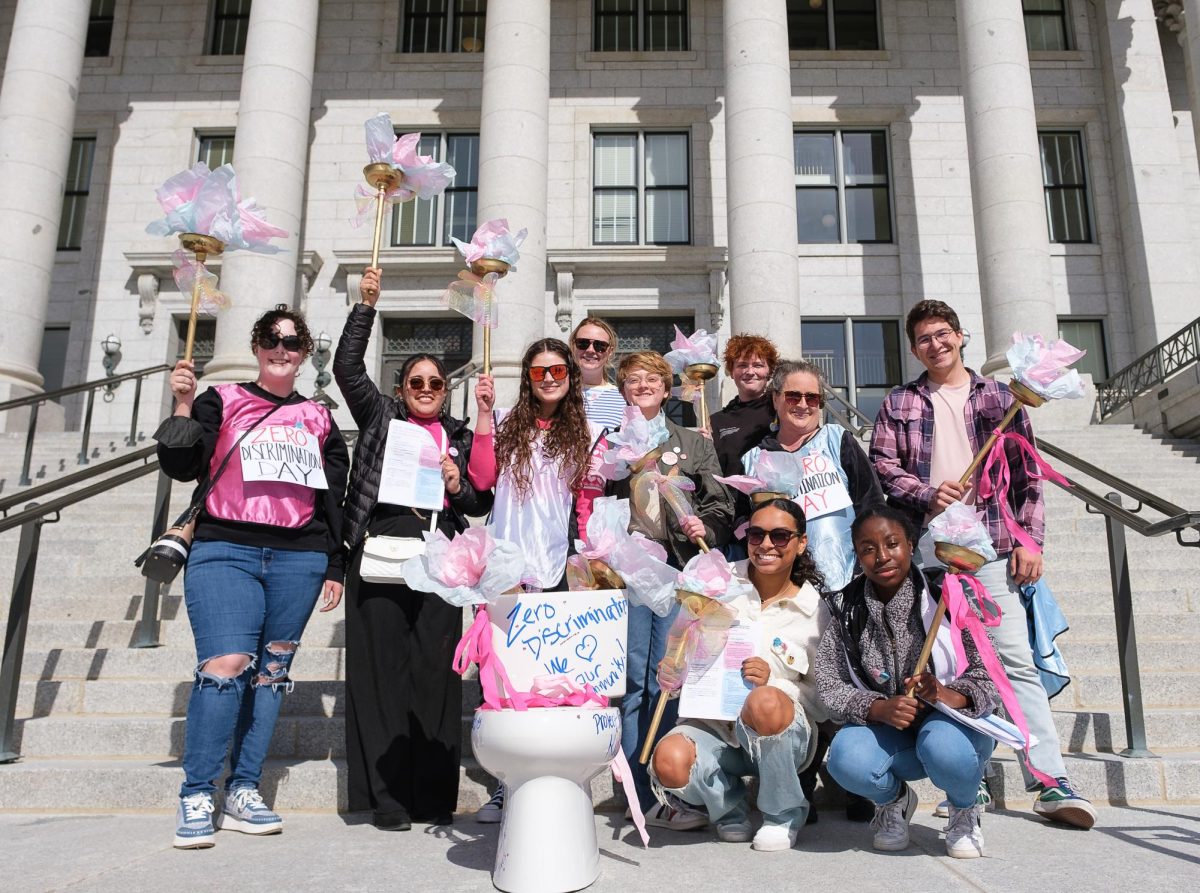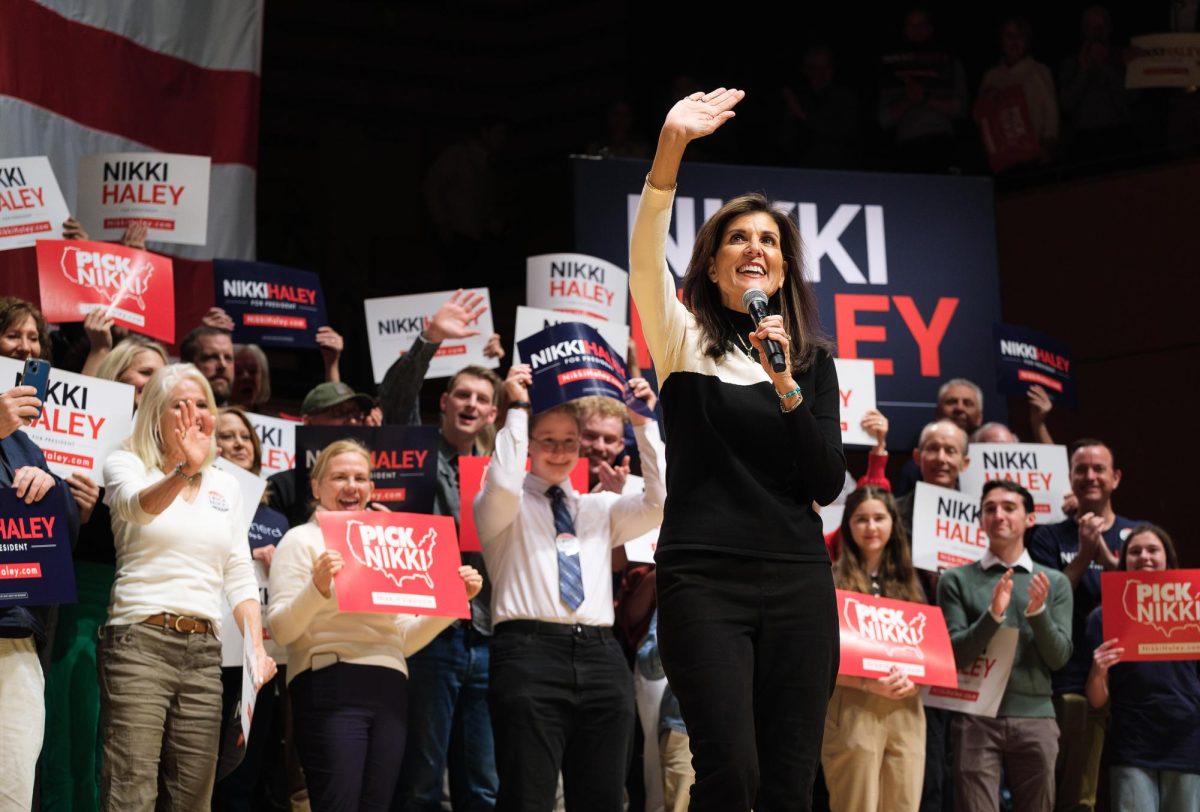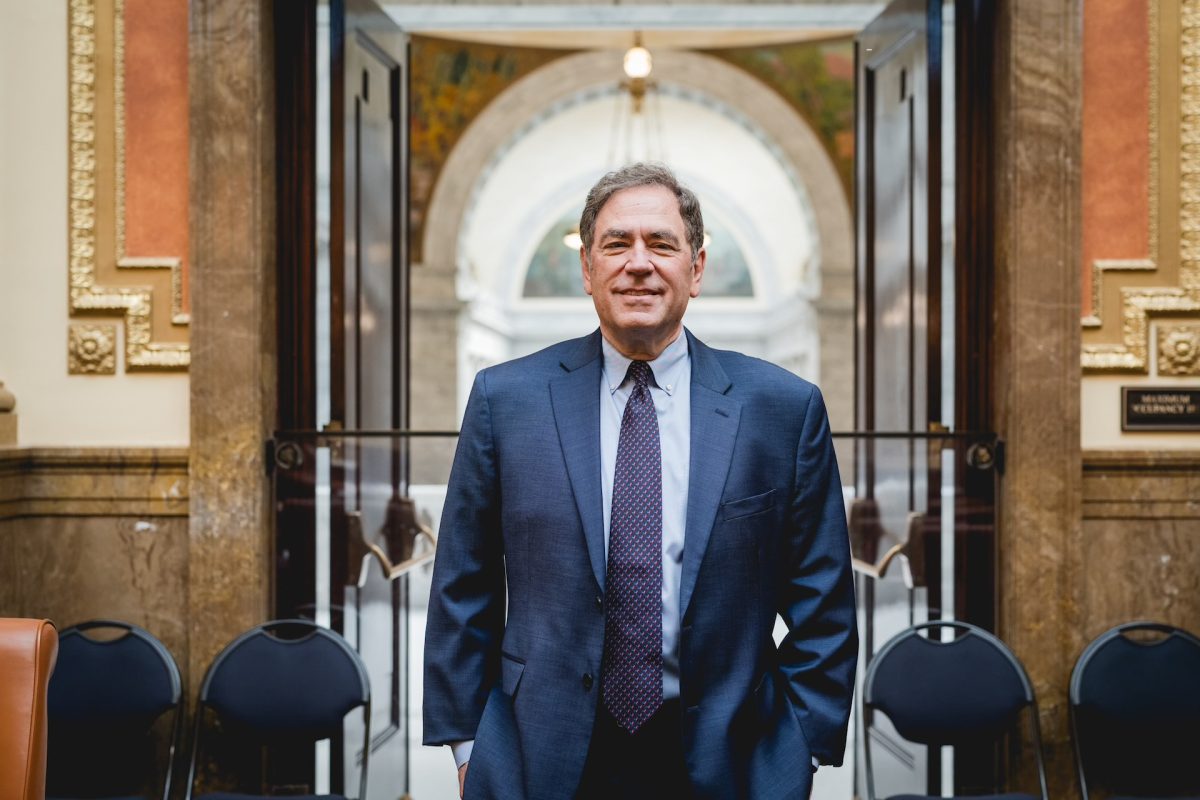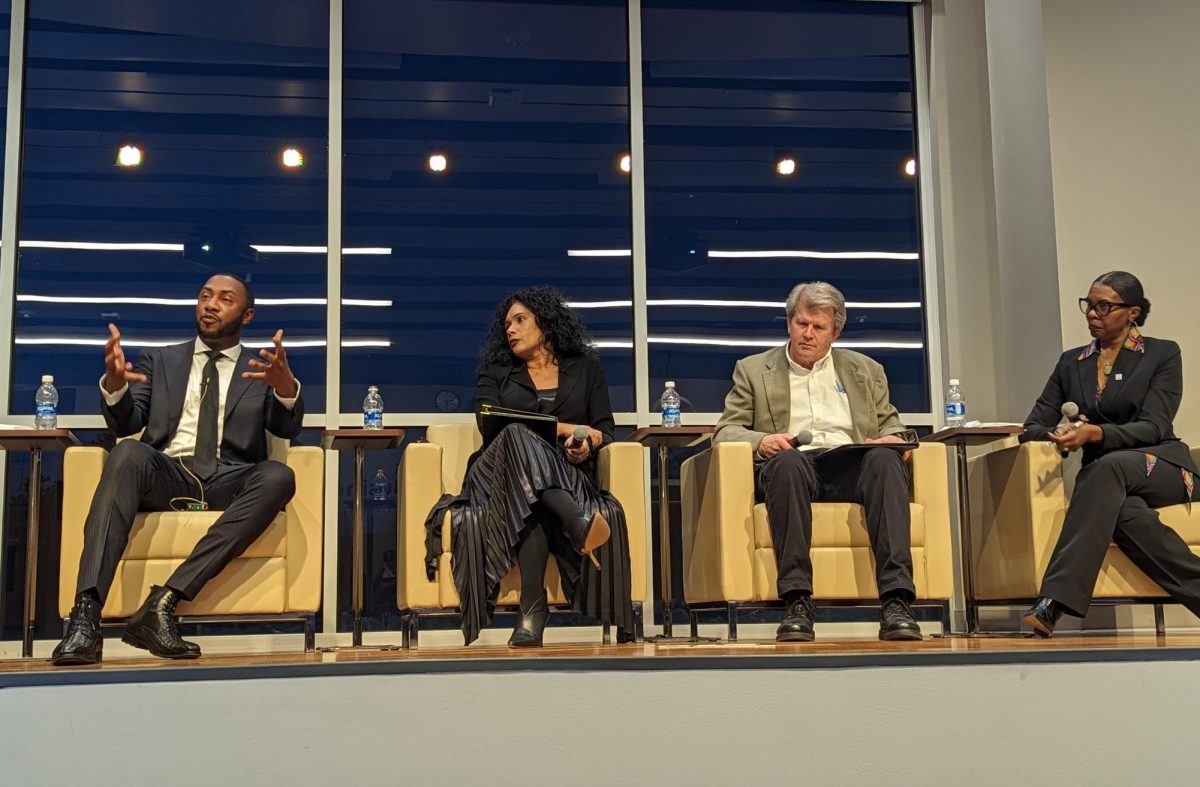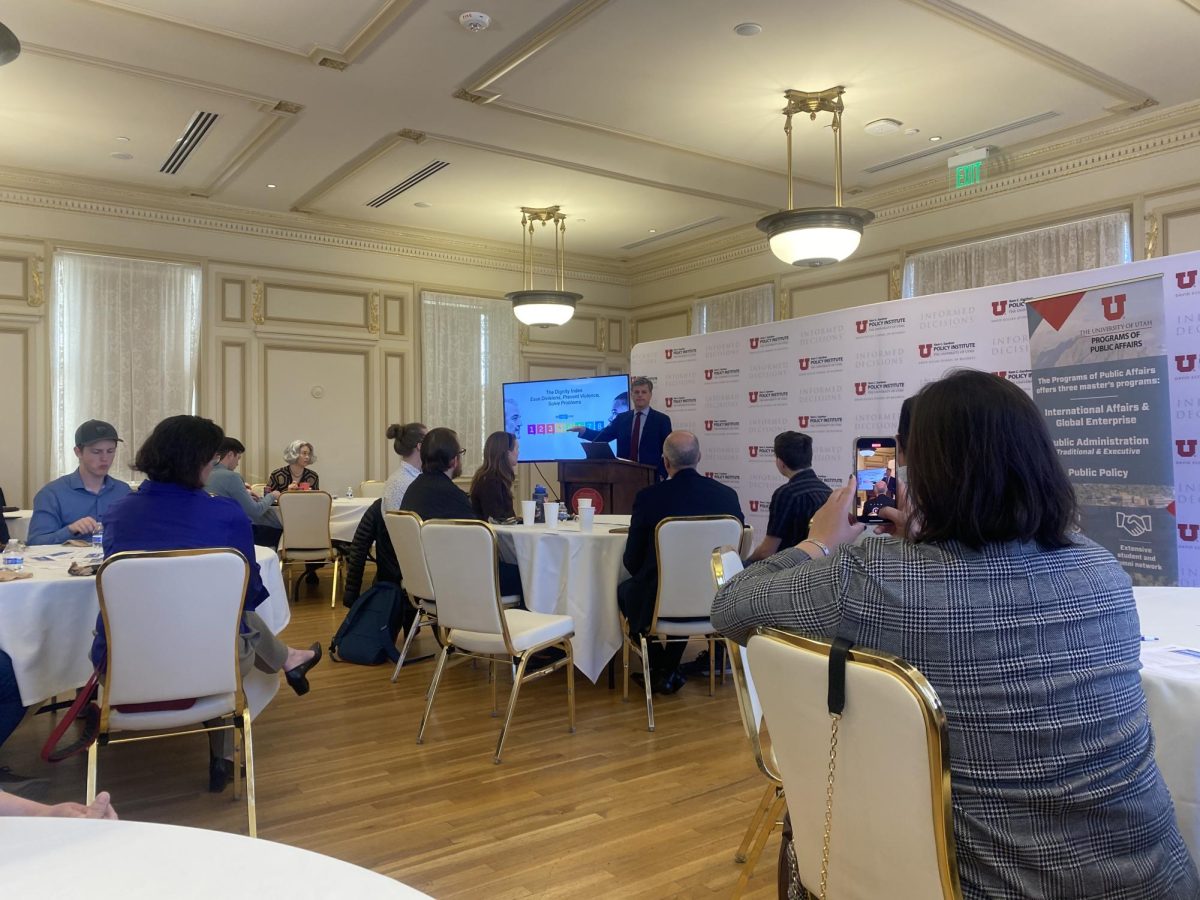
Amongst the protests, petitions and demands for equality across campus and around the world, the term “social justice” has become something of a buzzword.
In the broadest sense, social justice aims for everyone to have equitable economic and social opportunities and rights. On a smaller scale, it means actively working to eliminate biased thinking and actions among individuals. This includes organizations at the U, such as the LGBT Resource Center, and student groups, such as the Social Justice Advocates.
Kira Kiko Lian, the training coordinator for the LGBT Resource Center, said social justice programs and ideology promote the idea of equity rather than equality, using the metaphor of coats at a homeless shelter to explain the difference. Equality means there are enough coats for everyone, while equity means there are coats to fit everyone. Equity issues are involved in almost every aspect of society from immigration to food justice to advocacy for safe spaces for LGBTQ+ students. Because of this breadth of subjects, students may be unsure where to begin.
Brian Zenger, a senior in biomedical engineering and the social justice coordinator at the Bennion Center, said, “It’s definitely a daunting task, considering the many injustices that surface as you look a little bit deeper.”
Barb Remsburg, director of Housing and Residential Education, said it’s important for students to act, even if their actions to learn about social justice are small.
“I would invite students to attend a program, to find support, to attend a keynote speaker, to read an article, to go to a cultural performance … to put themselves in a space and place that is uncomfortable,” Remsburg said. “Then to do it again and again.”
The opportunities for students to familiarize themselves with the issue are growing. Students can attend safe zone training through the LGBT Resource Center. The next training will be hosted on Jan. 29, and Lian said they are also available for individual scheduling. At these trainings people familiarize themselves with the vocabulary and awareness of LGBTQ+ issues and privilege. The center also offers training on subjects such as being an ally.
There are also social justice projects in the Bennion Center. The social justice area is student-run and offers 11 programs that work with community nonprofits, such as the Road Home Homeless Shelter and Big Brothers Big Sisters Utah, to promote equity.
Gideon Tolman, public relations coordinator for the Bennion Center, said their primary work is to fix issues in Salt Lake, but the program is also about “creating that awareness in students so after they graduate from the U they’ll be more cognizant and more sensitive to those issues.”
“It’s easy to live within our own perspective and not see some of the larger social justice issues around us,” Tolman said. “Maybe you don’t deal with those issues, but they do happen.”
Other groups, such as the Social Justice Scholars and the Social Justice Advocates, promote critical thinking about societal issues. The scholars group typically hosts bimonthly meetings at their Officer’s Circle house. The advocates work to raise awareness among students in the dorms by hosting events, such as the MLK Week discussion on Jan. 22.
Students can also take classes that discuss ideas of race awareness, gender identity and more. The U offers more than 200 community-engaged learning classes. While not all of these courses are social justice-oriented, they all relate to the community beyond the U. Classes with the attributes of diversity, social work or gender studies also expose students to ideas of social inequities.
Zenger said he enjoys these classes, but it’s active engagement and the practice of social justice equities that provide a meaningful context for what he learns, taking “it to a whole other level.”
Lian said despite the many options, the programs are not always readily available to students.
“I have had to find that culture. I have had to seek it out,” Lian said. “I didn’t find it in my orientation tour; I didn’t find it comprehensive in the curriculum unless I opted into it.”
Lian said social justice at the U has a tendency to break from any actual aspects of humanity.
“People have time for training and have the safe zone sticker, but I do not see people willing to mess up and step up,” Lian said. “I don’t see a lot of value of labeling something as social justice training if there’s no behavior or action.”
Lian said those with certain privileges, like being heterosexual or white, tend to dominate the discussions of social justice on campus. Part of learning about social justice, Lian said, is learning how to listen to others facing oppression rather than speaking.
A critique often lobbied against social justice is that it is overtly politically correct. Lian said this claim of oversensitivity is common.
“A lot of people will say you’re being kind of sensitive,” Lian said. “Those reactions and responses come from a place of privilege.”
Lian said an inequality many students may not consider is the lack of access to gender-neutral bathrooms for transgender and gender nonconforming students. Gender-inclusive restrooms and access for students is limited on campus, with about one facility per building. This lack of a space for transgender students extends into other areas of campus as well.
“I only have one or two places that I can truly be all of me,” Lian said. “I don’t have all the rights and opportunities that cisgender people do.”
Cisgender is when someone’s gender identity agrees with the sex they were assigned at birth.
“There are certain identities and qualities that prevent full access to this campus like race, ability, identity, ethnicity [and] documentation status,” Lian said.
According to the U’s Office for Equity and Diversity, more than 70 percent of students selected “White” as their race in the 2012 academic year. Sex and gender discrimination also remain in certain disciplines, leaving gender gaps in the College of Education where just 66 of 410 degree-seeking students are male. The opposite occurs in the College of Engineering where just 560 out of 3,577 degree-seeking students are female.
Remsburg said these inequities suggest that departments should take action, advocating for access on campus for students with disabilities and minority students, as well as integrating social justice and diversity awareness into class curriculums.
Lian said it ultimately depends on individuals to demand equity on campus.
“I think we do need to be willing to risk,” Lian said. “Your actions should be so loud that I shouldn’t be able to hear what you’re saying.”
@Ehmannky












